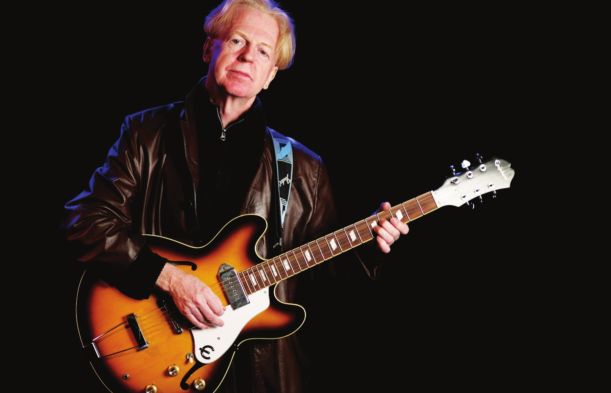
Kirwan, Foster and Lincoln
NOW PLAYING | Tom Irwin
What do the songs “Oh! Susanna,” “Camptown Races” (“doo-dah, doo-dah”) and “Old Folks at Home” (“… way down upon the Swanee River”) all have in common? Other than most of you are now humming the tunes of these immensely popular songs, they were all written by the famed, mid-19th century American composer, Stephen Foster.
Now what would bring Larry Kirwan, an Irish expatriate playwright-songwriter-musician, to Springfield to talk about Foster’s music? If you guessed a connection to Abraham Lincoln, you win the grand prize. Phil Funkenbusch, the Abraham Lincoln Presidential Museum theater director, contacted Kirwan about “Hard Times,” his play of mostly Foster songs, set in New York City during the Civil War. While discussing a possible Springfield production of the piece, they decided first on a presentation. Kirwan, a longtime New York City resident and Ireland native, comes to the ALPM’s Union Theater, April 25 and 26, to sing songs and talk about the history behind and the making of “Hard Times.”
Kirwan broke into the music business during the 80s through the Irish folk/punk scene with a band called Black 47, a historical reference to 1847, the worst year of the Irish potato famine. The group made major label records produced by luminaries such as Ric Ocasek of the Cars and Jerry Harrison of Talking Heads and the band continues currently performing and recording, creating an incredible legacy of meaningful music. Kirwan keeps other artistic fires burning writing novels, a regular New York City music column and occasional theater work.
“I grew up in Ireland listening to Foster’s music – not the Victorian drawing room shit, but in pubs where a man would have a few drinks then get up and sing,” he explained. “The longing and loss and all the topics in his music are universal.”
As Kirwan got into Foster’s works later in life, he also became intrigued with the star-crossed personal life of the brilliant and successful writer. By sifting through the actual life experiences of Foster, Kirwan connected with events that gave voice and meaning to the songs of Foster.
“Oddly enough I discovered where I live in New York was not far from where Foster died—at 37 years old with 38 cents in his pocket, by the way—and where he lived in Five Points,” he said. “He wrote on a rum-soaked table in his later years, visualizing the piano keys because he didn’t have a keyboard to use.”
The Lincoln connection comes in the form of the New York City draft riots of 1863 as the poor folks, including many Irish immigrants and descendants, reacted violently to the Union army’s conscription policy during the middle of the Civil War. During the unrest, Foster wrote songs reflecting the intertwining culture of black, working freeman and the Irish newcomers. The play takes place in the saloon where Foster composes, as scenes of this racial, political and social situation unfold, reflecting cultures clashing and combining to create a new fabric in American society.
“I went through his music extensively and picked 20 songs I wanted to work with,” said Kirwan. “I was hesitant to mess with Foster, but I just gave them room to breathe. The songs speak for themselves.”
The next time Venice returns to Springfield, gets your tickets early as the charity show at the Legacy Theater sold out weeks ago. Switchback, a highly acclaimed, Celtic-Americana duo performs Friday night at the Hoogland. The Springfield Jazz Society Spring Brunch is at The Maple Club in Lincoln on Sunday with Nathan Carls singing and the Rob Killam Quartet playing (217-414-2955). Rabblerousers and good citizens all take note of the annual Haymarket Festival celebrating workers everywhere at Donnie’s Homespun on May Day (Wed., May 1) at 6 p.m.